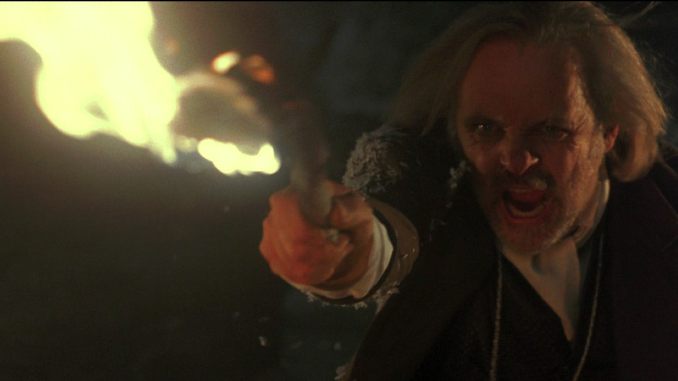The Count Gets All the Love, but Anthony Hopkins’ Van Helsing Makes Bram Stoker’s Dracula Soar

The more time passes, the better Bram Stoker’s Dracula looks. Francis Ford Coppola’s 1992 film adaptation of the foundational horror novel has always been a sexy, kinetic nightmare, but in an age when audiences worship at the altar of “believability” and CGI and LED Volume stages consume the visual language of film, the practical wizardry and expressionistic depth of the film makes it shine even brighter. It’s been three decades, and we’re still finding things to appreciate in its phantasmagorical wonder.
And yet, despite the continued, even growing, love for the film, I always feel that one particular element is too often left out of the conversation. We talk about the costumes, and the practical effects, and the transformative creature makeup that made Gary Oldman’s ferocious performance all the more terrifying. We talk about a lot of things, but at least anecdotally, it always feels like we never give quite enough love to Anthony Hopkins’ fearless turn as Professor Abraham Van Helsing. In a film full of memorable performances, it’s quite possibly the most important, the counterweight to Dracula’s own madness and a truly great piece of work from one of our finest actors.
By the very nature of the story, Dracula and Van Helsing are set up as opposites, two forces at war with another, the great prince from the wild unknown of Eastern Europe and the dogged scientist from the West, each striving to bring the other down. Dracula is a story laced with many metaphors, but one of its most potent is Dracula as aristocrat, literally drinking the blood of those he finds beneath him, sucking the masses dry as he buys up chunks of London real estate and prepares a new path to conquest after years of solitude. Within that metaphorical space, Van Helsing is then set up as the one of the avatars of the Industrial Revolution, of progress driven by machines and science that will wash away the old ways, Dracula’s ways, of doing things. It’s no accident that when we first meet him, he’s delivering a lecture on blood diseases. He is not dismissive of superstitions or even the outright supernatural. He is in fact determined to investigate them more deeply.
It’s this instinct, this desire to know and understand even the darkest corners of the universe, that sets Van Helsing apart from even his fellow vampire hunters, who spend much of the film scoffing at his claims of monsters in the dark, clinging to the light of Western medicine and logic for answers they still can’t seem to find. It’s also that same instinct that drives much of Hopkins’ performances, and allows him to push Van Helsing into some truly unexpected places.
-

-

-

-

-

-

-

-

-

-

-

-

-

-

-

-

-

-

-

-

-

-

-

-

-

-

-

-

-

-

-

-

-

-

-

-

-

-

-

-








































